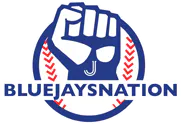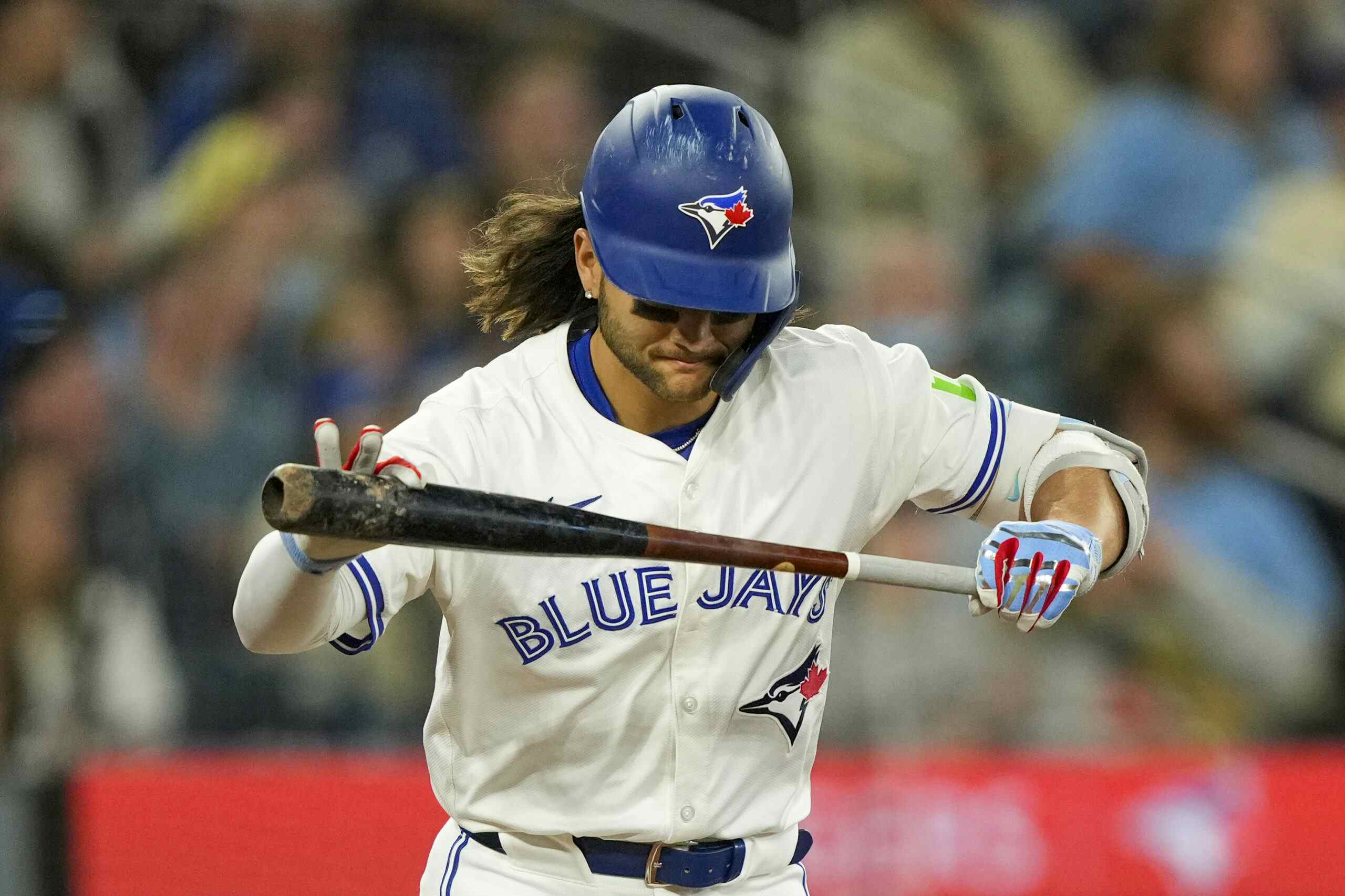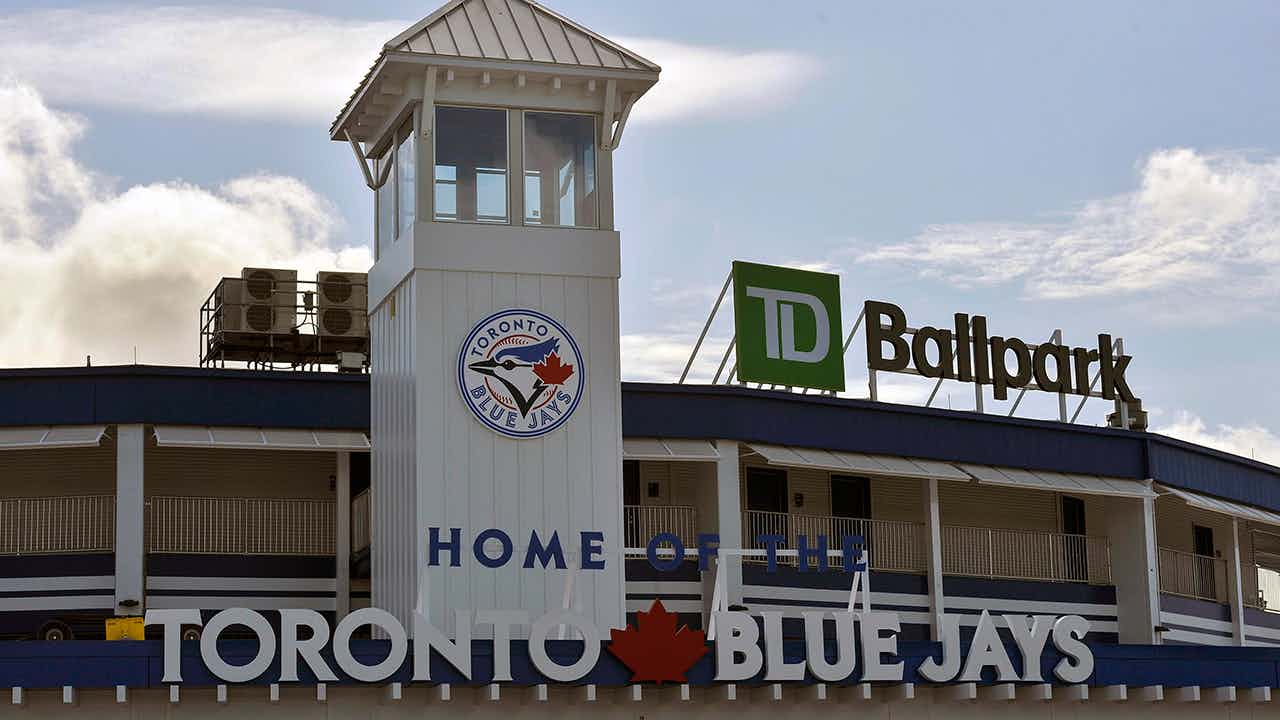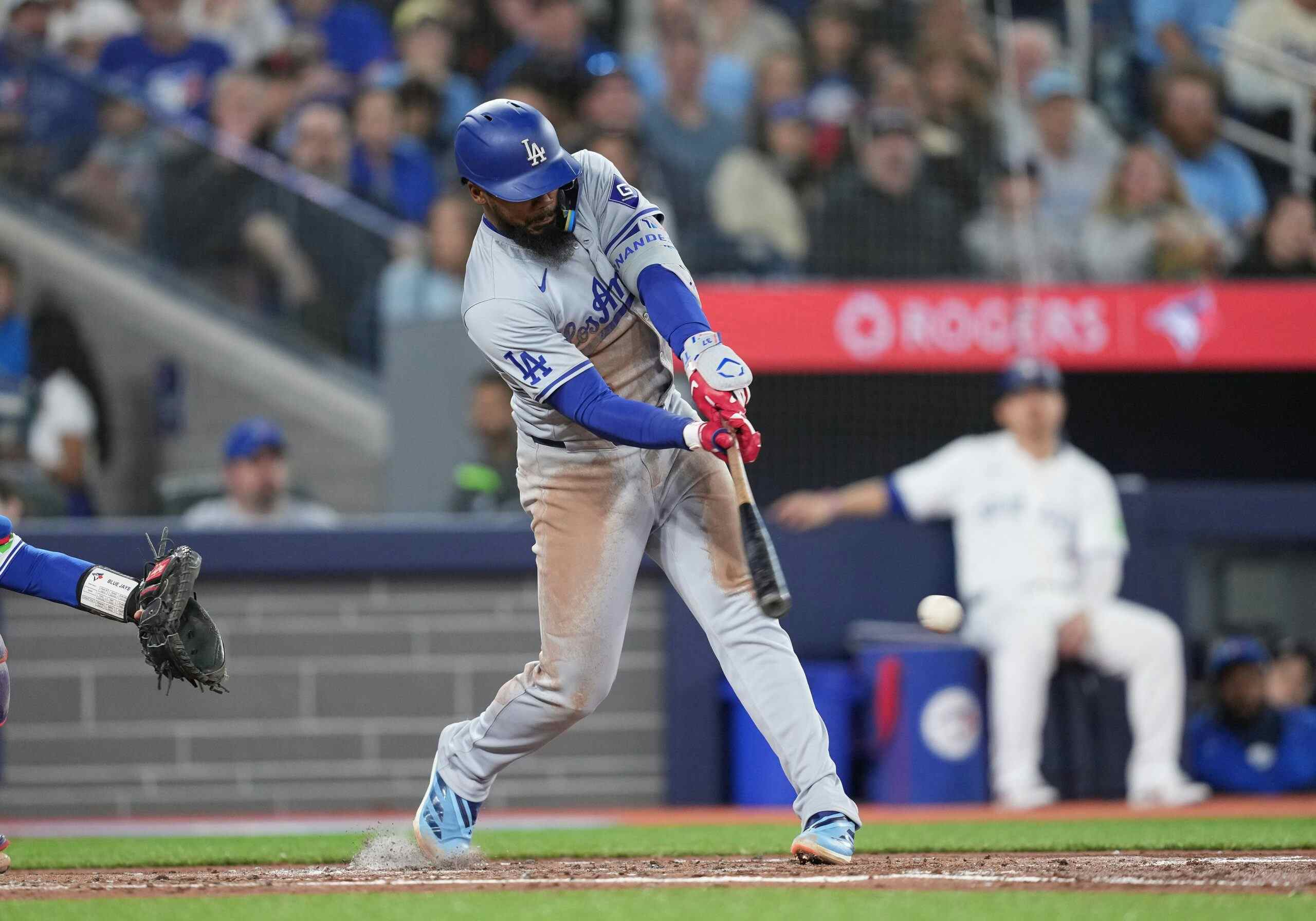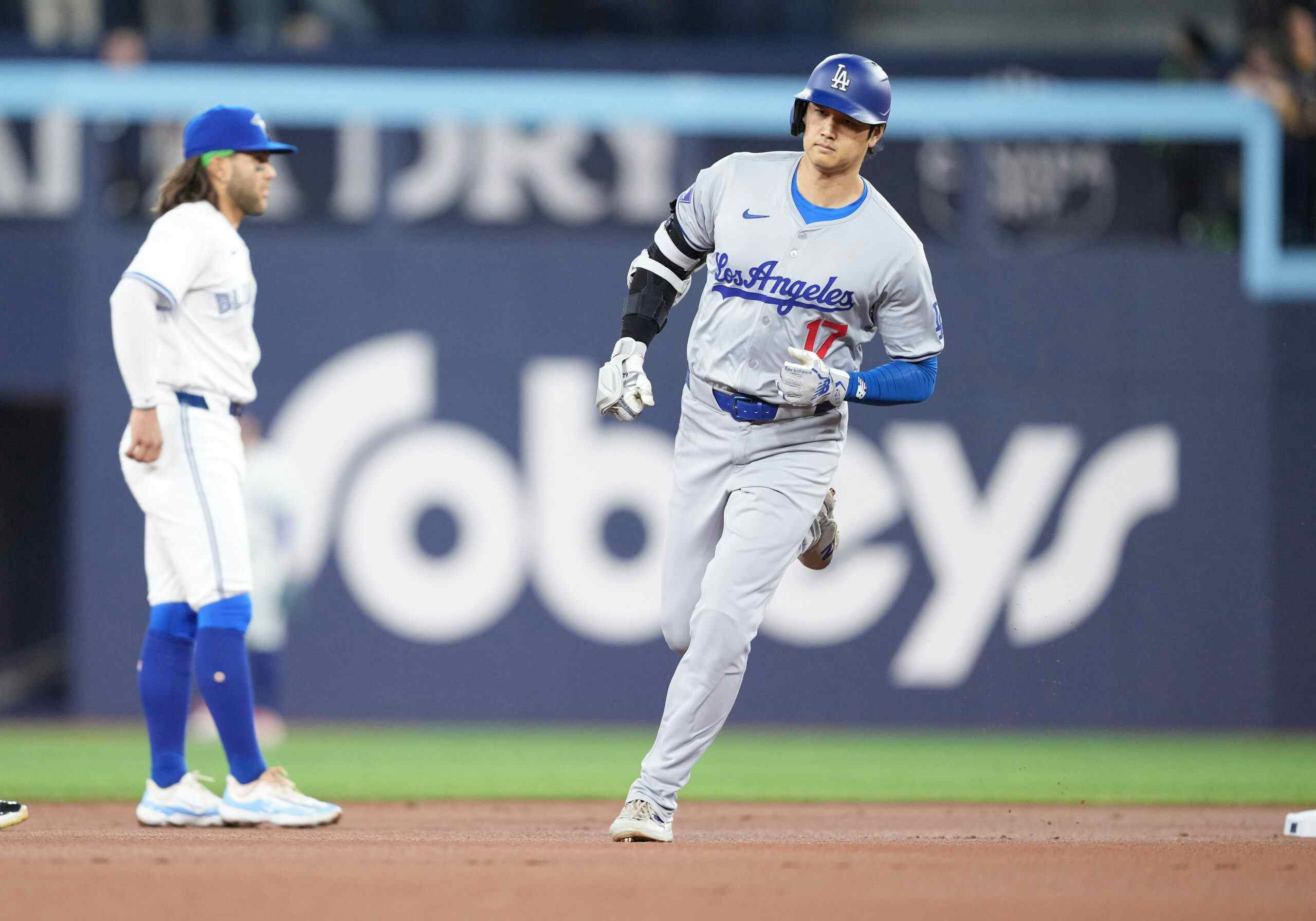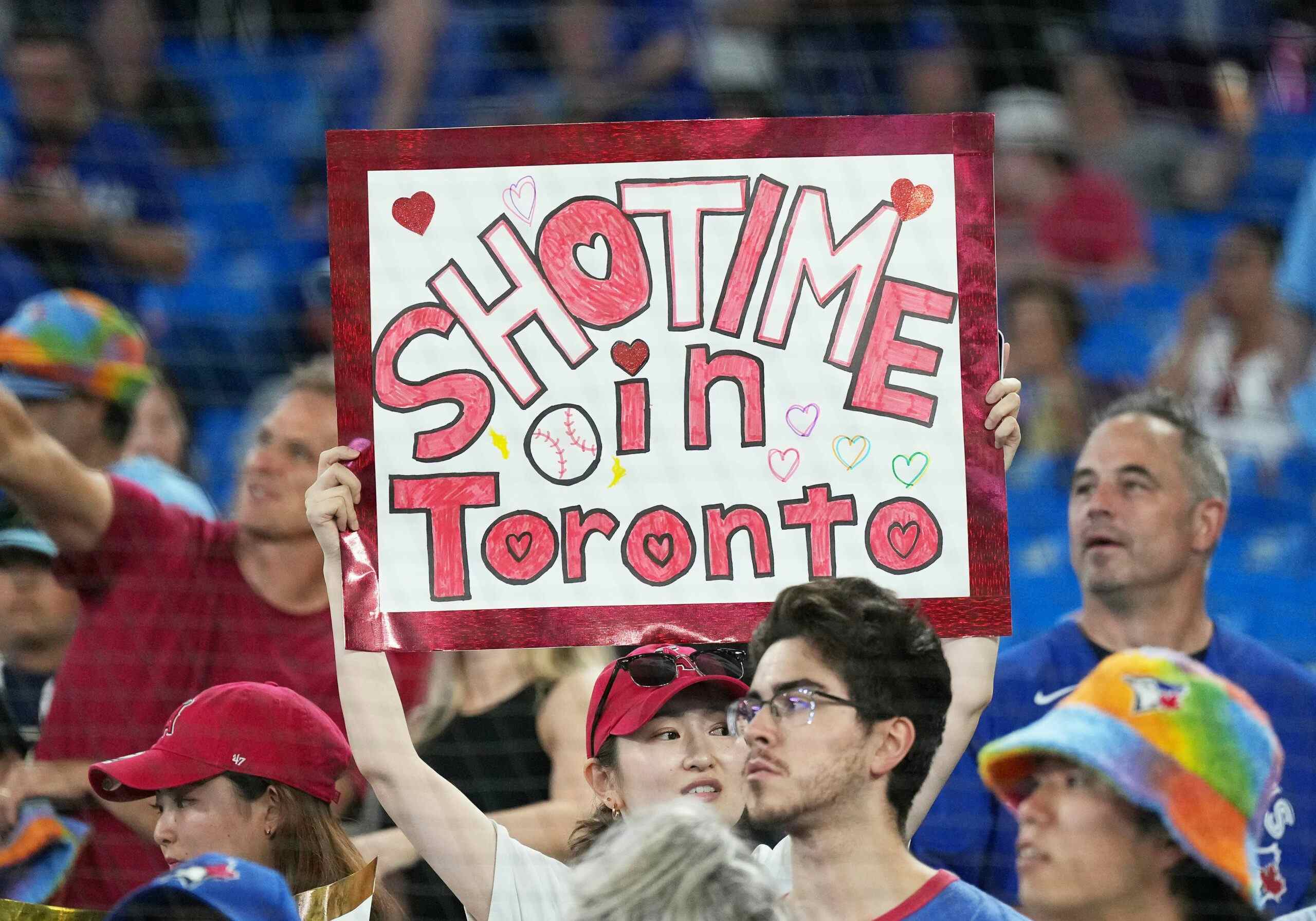Talkin’ Offseason Baseball With Mark Shapiro
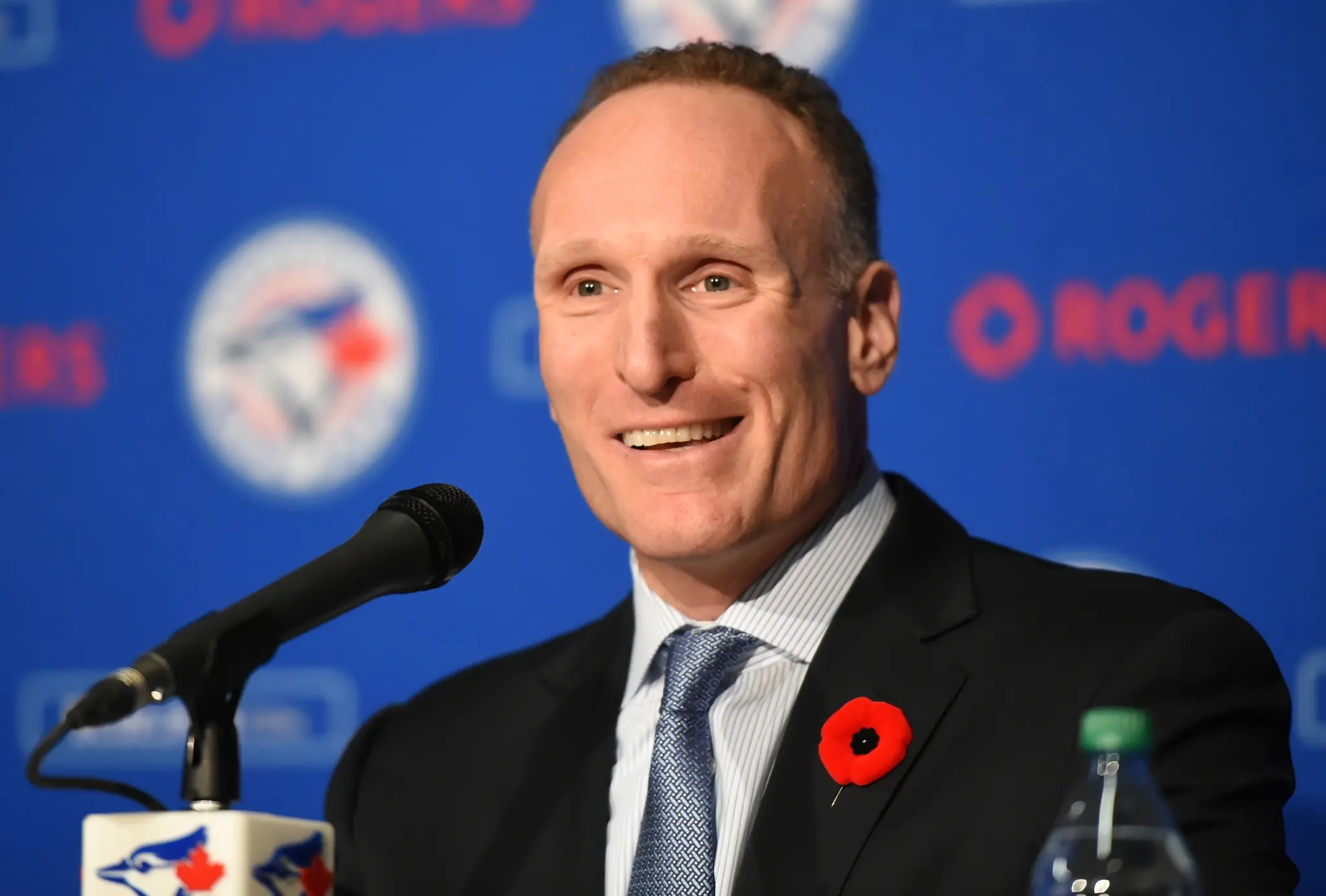
When I was a kid, I grew up on Roehampton Avenue in St. Catharines. A small street in the North End of Niagara’s capital city, or something like that. It was only a couple of blocks from Facer St., which is still home to St. Joseph’s Bakery where you will find the best slice of pizza.
I lived in an apartment and every summer all of us little Roehampton squirts would meet in the park and play baseball all day. There was a group of tall pine trees out in left field that we pretended was Fenway’s Green Monster. It looked like a green wall. We used our imaginations. None of us cleared the ‘monster’. When we were done playing baseball, we would go home and watch the Jays on TV. It was baseball all day and baseball all night.
I’m not sure really why I’m going on about this, but I think it’s because as adults we sometimes forget to reflect on our past and the reasons why we fall in love with something. I think that during this era of social media, some fans banter with each other over advanced metrics and play the I-know-more-than-you game, forgetting why they fell in love with the sport to begin with.
I think that we can all agree that baseball is beautiful like a Devon White catch. It’s dirty like a Josh Donaldson slide into home to eliminate Texas. It’s as smart as Roy Halladay at his best on the ol’ dirt hill. And as random as a live ball off the bat of Choo’s hand in game 5 of the ALDS.
If there is anyone who knows about the randomness of baseball, especially playoff baseball, it’s Mark Shapiro. And if there is anyone who loves the game of baseball as much as a fan, it is Mark Shapiro. I think that many people tend to forget that MLB executives share the same love and passion for baseball as the fans.
I had the opportunity to talk in person with Shapiro, who was cool enough to agree to do this with me. I went into the interview, of course, with a list of prepared thought-out questions. I researched and read and read some more and researched and read some more and made notes and made more notes and then created some of the finest questions that I thought Jays fans would be interested in. But, how many of those did I actually ask? Not a whole heck of a lot. And the truth is I’m happy about it.
My approach heading into this interview was to have a nice offseason conversation about baseball for Jays fans to enjoy or scoff at. We started discussing education, as Mark is a person who admires learning, which is clear from the pile of books that sit on his desk. And also from the many quotes that he has written on the wall in his office. The one that stood out was: You’ll be the same person in five years as you are now, except for the books you read and the people you meet. Always be a learner, son.
Mark told me that I was going to be his last interview of the year. I could tell that the man had been working hard, not that he looked tired or anything. But, I got the sense that he was ready for a little downtime with his family over the holidays.
The thing is, as most of you already know, the baseball season doesn’t have any end for front offices, so there really isn’t much downtime, even during the holiday season. Mark told me that he will be off from the 23rd to the 28th and then he is back at it again.
Mark and I began our interview discussing the nature of sports fans. I mentioned to him that it’s often hard for some people to see that the front office has been in the process of rebuilding over the past couple of seasons and that the ‘long game’ seems to come up short in appeasing fans:
People in general don’t want to intellectualize sport no matter how smart they are; no matter what they do. They largely view sports to be an escape, so they don’t want to intellectualize it, ya know, they don’t want to think about a strategy. They want to think about what are the results and so they are going to judge you strictly on what is happening today.
As we are all aware of, every MLB team is looking to have a ‘quant-edge’ in this advanced metrics era – looking for that competitive advantage.
It’s all about wanting to make informed decisions. One of the major inputs to doing that is the tremendous amount of data that baseball continues to generate, and it keeps growing. But, you also need to stay aware that you’re still dealing with human beings. So baseball can never be completely quantified, which is the beauty of it. So, it’s still an art, and there is still the necessity for connectivity. Ultimately, the biggest reflection I can give you of the combination of data and the people side is the choice for our manager. We didn’t just go with the young analytically driven trend, we went with a manager who has been aware of and involved with a very data driven organization even if he wasn’t the driver of it. But, he’s also a connector of people. He is warm, genuine, authentic, and experienced.
Those are qualities that can create a comfortable learning environment for the players. I often hear you say ‘open-mindedness’. This seems to be an important characteristic for you.
I think humility leads to openness and openness leads to learning, ya know. I’m always looking for competitive advantages, so I want to win. It’s not like I’m not trying to build some laboratory of what works. I’m trying to win, and I think to scale competitive advantage: it’s not about one leader, it’s not about one person, and it’s not even about one department. It’s about how can you have 1000 incremental contributions. 1000 incremental efficiencies, and, to me, the greatest competitive advantage that exists is to have a learning organization.
So what does that mean? Ya know, a learning organization means perpetual improvement. A learning organization means you’re open-minded to learning every single corner. You are willing to go to Pitch-A-Palooza, in Nashville, and sit through 10 presentations. We will hear 10 presentations and 8 of them are probably not going to work in professional baseball, but two of them might. And you might learn something and you might get better. The mistake would be to say we’ve got it all figured out and we’re just that smart and we’re just that good.
There are always good ideas, and you never know where they’re going to come from. We’ve obviously hired writers, so we’re open-minded to wherever the competitive advantages lie. We need to stay open-minded. So, humility and open-mindedness, I think, lead to learning and learning leads to scalable competitive advantages.
And I’m pretty sure that in all of what Mark said, this answers how Carson Cistulli, former FanGraphs writer, fits into the Jays’ organization. Now, I thought since we were on the topic of competitive advantage, we could talk about how Charlie Montoyo seems in favour of experimenting with an ‘opener’ if he has the right pitching to make it work. I took the question a bit further and asked Mark if he thinks that this approach is something that more teams are going to explore in the future?
Yeah…I do think that it’s got an opportunity to bridge a resource gap. So, I don’t think that if you are a 250-million-dollar payroll, you’re going to use the opener, ya know, very often – unless you have injuries or something like that.
In a recent interview you did with Stephen Brunt and Jeff Blair, you said:
I think for us to be successful in the American League East that not having a bad culture is not good enough, that we need to have an exceptional culture. We need to have a culture that is built upon some very clear and defined values.
Could you explain these defined values?
I think we’ve kind of hit on a couple of them, ya know. Learning is certainly one of those values, which means perpetual improvement. And this means that you’re never really satisfied with where you are. You’re always kind of curious and focused on getting better, and open-mindedness is kind of the foundation for that learning. So, I think that we talked about those things…On the player side, it probably manifests itself in a couple different ways. It means that they understand that being a teammate and being a good teammate is as important to our success as taking care of their own performance. Because when they are a good teammate, they have the actual ability and power to not just improve their own contribution and performance, but the contribution and performance of other players. And when 25 guys are doing that, they’ve got a chance to outperform objective expectations. So, what I was referring to in that interview was if we are as good as our talent, we meet objective expectations. And if we spend to what our resources are, then we are probably a .500 team and we probably finish third place in our division almost every year…not every year, but almost every year. That kind of happened here for a long period of time, right?
(Ed. How can any of us forget?)
Ya know, there weren’t a lot of terrible teams, but not great teams. So, if we’re winning the AL East, we probably need to be exceptional. We need to have something that generates performance; that exceeds objective expectations; exceeds what the payroll says it should be because the payroll is directly tied to your expectations.
I was talking to R.C. Buford, who is the GM and president of the Spurs, ya know, 4 World Championships…They’re kind of a modern symbol of championship success. He kind of told me, ‘Mark, bottom line, you can talk about values. You can talk about culture, but your best player is your culture.’
I was talking to someone last night about Bryce Harper and Manny Machado, and, I said, ‘Listen, I haven’t spent any time with those guys. I’m definitely not qualified to give you advice about whether or not they should be signed or not. But, I know if I was thinking about signing those guys, all my time would be spent on what kind of teammates they are. You know what kind of performance they’re going to bring, but when you turn over those kinds of deals and they become the best player in your clubhouse for 5, 6, 7 years, you’re turning your team over to those players. So, the focus and emphasis needs to be as much on if they are the right people to lead a championship organization.
When Mark finished saying that, it reminded me of the movie Draft Day starring Kevin Costner. It wasn’t a great flick, that’s for sure. But, I remember his character digging around to find out what kind of person some QB was. Anyway, it makes sense that a team is going to want to find out everything they can about a player who is going to reflect the culture of the clubhouse moving forward. I guess if your best player is your culture as R.C. Buford told Mark, then Vladdy is the future culture in Toronto.
I decided to switch topics and congratulate Mark on everything happening in Dunedin, especially now that we all have a clear picture of what the complex is going to look like.
It’s a piece of infrastructure that can both drive culture and allow for cutting edge resources, so it’s kind of that bond between technology, analytics, culture, environment, ya know, those things coming together.
I know that you are extremely excited about the new facility in Dunedin and it looks awesome, but how do you feel about the progress you’re making on the Rogers Centre upgrades?
We’re doing what we need to do to this building. We’re putting a new roof on. When you walked over here, you probably saw the massive amounts of concrete that are being replaced in the waterproofing to ensure the foundation stay strong. We’re changing and refreshing the 100 level, the 200 level, we’re changing out concession stands with pretty significant changes as well as building a new premium area, which we’re going to talk about in the new year.
The magnitude of the project, the magnitude of what it’s going to take from city to province to country to get the best results here to our fans. It’s going to take a bunch of time, so we’re getting closer. I feel like there’s a plan, and it’s close to kind of taking shape and being executed. But, it is much bigger than what I even thought about when I first got here. And it has taken a lot longer and there has been much more involvement on the ownership level, too.
My time with Mark was running out and I really wanted to ask him about Vladdy. I told him that many Jays fans feel like he should be on the Opening Day roster, but understand the nature of the business.
I’ll tell you that is something that I never said in any interview, or any of the hundred conversations about Vladdy and his development here. Honest to God, service time has never once been a conversation…never once even been uttered in those conversations. The challenge in a player like Vladdy is like we had with Manny Ramirez in Cleveland, which is one aspect of his tool set is so advanced and it’s clearly Major League ready now. But, the other areas of his game – the rest of his skill-set, ya know, while still advanced for a 19 year old, is not Major League ready.
Some fans don’t believe it.
But, that’s just because there’s not as much, ya know, dynamic for them to kind of focus on right now. So, there’s a thirst and a desire: the nature of being a fan is immediacy. It’s right now, this moment. We are trying to ensure that he has the best foundation for him to be the best player possible because once you get to the Major Leagues it’s extremely difficult to develop. It’s not about development. It’s about survival. It’s about production and it’s about your earnings, putting up numbers for arbitration and not about development. And we are open-minded about it being April 1st, ya know, it could be April 1st. It’s still a dynamic conversation that we’re having, so we’re not thinking about service time or we wouldn’t be considering April 1st as a potential date. But, we still are going to make the best decision to prepare him to be the best major league player not just the best major league hitter that he can possibly be.
Baseball fans feel like the Collective Bargaining Agreement is responsible for keeping deserving players in the minors for an extra year of control. Do you think that this is an issue that the MLB and MLBPA need to address once the current CBA expires in 2021?
I think they’re probably going to want to think about the 17% rule maybe more than anything.
Mark’s son was waiting for him in the lobby at this point in time and I didn’t want to hold him up any longer because he had life things to do and he had already given me so much of his time. But, I needed to find out why he loves baseball because we all have our different reasons and I wanted to listen to his.
My love for the game revolves around my Dad. My Dad loved baseball. My Dad played Division 3 College, but it was a part of our bond growing up. Now, that was going to Orioles games, ya know, watching Brooks Robinson and watching great Orioles teams. But, it was also playing wiffle ball, stick ball, catching the duct tape baseball hit off the gravel from playing in the street. It was going to the beach in the summer and playing stick ball.
As much as we all love to obsess over the advanced metrics and a player’s value these days, doing this interview with Mark Shapiro reminded me that there still is a human side to the sport, as well. It’s a side of the game that will never disappear. A player might be worth 6fWAR and 35 million dollars a year, but the metrics can’t dig into the character of a player who can perform like this. Talent is one thing, but finding the right personalities who have talent is completely different.
No one ever knows where the road is going to lead. Life is kind of cool like that. We wake up, force feed, and head out the door to make our ends meet. It can be tiring, but we press on because that’s what you do in life. You press on. But, for all of us baseball fans, we know that at the end of the day the whole purpose is to get home safely. George Carlin said it best, ‘In baseball the object is to go home! And to be safe! – I hope I’ll be safe at home!’
Maybe that’s what makes baseball so damn beautiful.
Recent articles from Ryan Di Francesco
